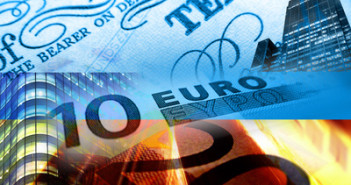The EUR/USD is showing slight gains as we begin the trading week. With little to report from last week’s EU Summit, the markets are focusing on the regional elections in Spain which took place on the weekend. Spanish PM Mariano Rajoy received a major boost as his center-left Popular Party increased its majority in Rajoy’s home region of Galicia. However, the uncertainty over a Spanish bailout continues to weigh on the euro. Will this electoral victory lead Madrid to postpone requesting a bailout? There are no scheduled releases out of the Euro-zone or the US today.
Here’s an update about technical lines, fundamental indicators and sentiment regarding EUR/USD.
EUR/USD Technical
- Asian session: Euro/dollar edged higher, and consolidated around 1.3050. The pair has edged higher in the European session.
- Current range: 1.3060 to 1.3105.
Further levels in both directions:Â Â 
- Below: 13060, 1.30, 1.2960, 1.29, 1.2814, 1.2750, 1.2670, 1.2624 and 1.2587.
- Above: 1.3105, 1.3170, 1.3290, 1.34, 1.3437 and 1.3480.
- The pair has strengthened and pushed above 1.3060. 1.30Â is strong on the downside.
- 1.3105Â is the next line of resistance.
Euro/dollar steady following Spanish regional elections– click on the graph to enlarge.
EUR/USD Fundamentals
- 17:30 US FOMC Member Sandra Pianalto Speaks.
EUR/USD Sentiment
- Regional Elections bolster PM Rajoy: Prime Minister Rajoy received some much-needed good news as his Popular Party won an absolute majority in the northeastern region of Galicia. In the Basque region, the PNV and Bildu, both staunch nationalist parties, were the winners. Madrid will no doubt spin the electoral victory in Galicia as a vote of confidence for the Spanish government’s austerity program. More importantly, the Spanish government may now feel that it can afford to delay a request for a relief package, which will mean more uncertainty in the markets.
- EU Summit Disappoints: Leaders of the 17 euro countries did reach an agreement to move forward with plans to create a single banking supervisory authority. However, the plan, which aims to further integrate the financial sector in the Euro-zone, is vague on key details, such as when the “super bank commissioner†will begin his/her work. Under the initiative, the bank commissioner would be responsible for all 6,000 banks in the Euro-zone. Greece and Spain barely made the agenda at the Summit, and the lack of progress on the Spanish bailout has soured market sentiment and put an end to last week’s rally by the euro.
- Greek/Troika talks continue: Talks continue between Greece and the European Union, European Central Bank and International Monetary Fund on a new set of spending cuts and economic reforms in exchange for the next installment of bailout funds, worth 31.5 billion euros. The talks have dragged on for months, and Greece claims it will run out of funds in November if it doesn’t receive the funds. According to a German media report, the German finance ministry was studying a proposal whereby the Greek government could borrow money from the ESM bailout fund and buy back its own bonds for 25% of their value, so that every euro would reduce the debt mountain by 4 euros. The German Finance Ministry refused to comment, sticking to the government’s official policy that no decisions will be made until the troika’s report is completed.
- Positive Chinese data improves risk sentiment, bolsters euro: China can take some credit for last week’s rally by the euro, after some positive numbers from the Asian giant. The country’s trade surplus widened in September, and exports jumped 10% compared to the same period a year ago. GDP was done slightly to 7.4%, but matched the market estimate. Strong Chinese readings could indicate an improving global economy, which is bullish for currencies such as the euro, as investors are willing to take on more risk and move away from the safe-haven dollar. On the downside, the dispute between China and Japan over some contested islands continues.  Trade is down and tensions are up between the two Asian giants.
- US economy continues to zigzag: Recent data out of the US has been mixed, as the economy seems to take two steps forward and one back. The Unemployment Rate dropped to 7.8%, but Unemployment Claims were much higher than the estimate. There are signs of an improving economy – housing numbers and consumer confidence, for example are pointing up. This has been good news for US consumers and has given a boost to President Obama, who finds himself in a very closely contested election. On the flip side, gas prices have spiked, government debt is at record levels, and the road to recovery promises to be a long one.



